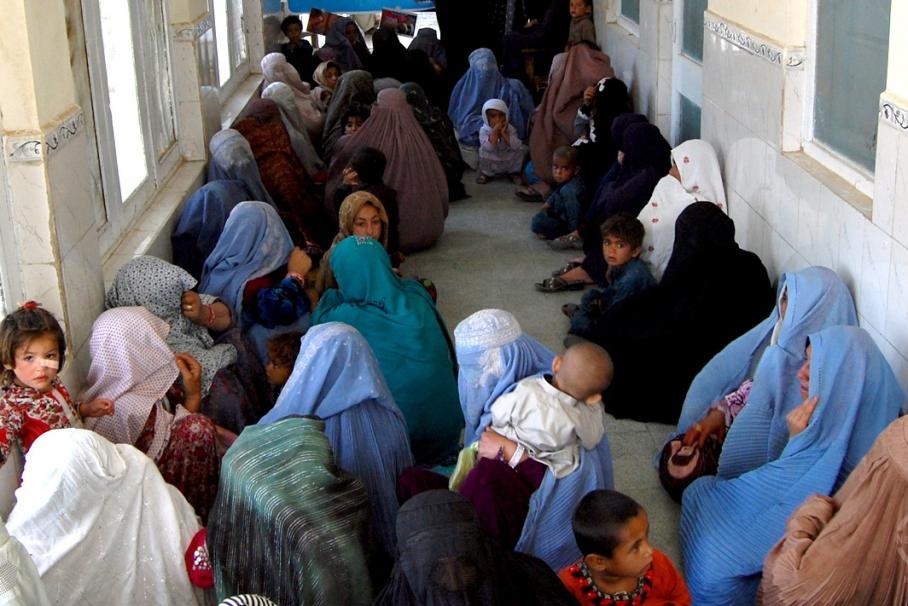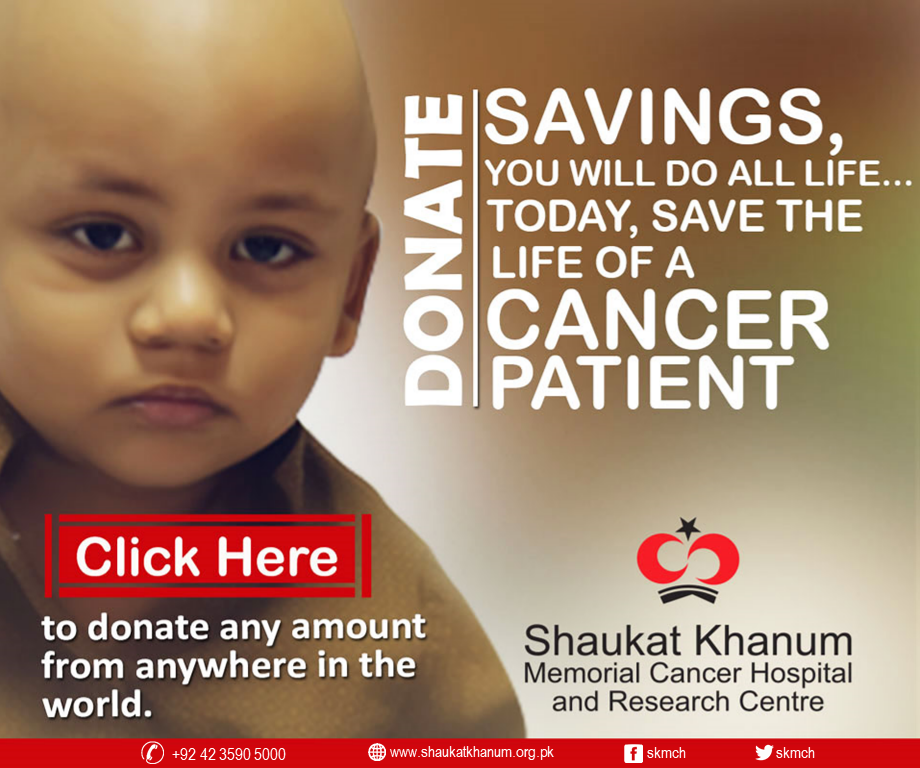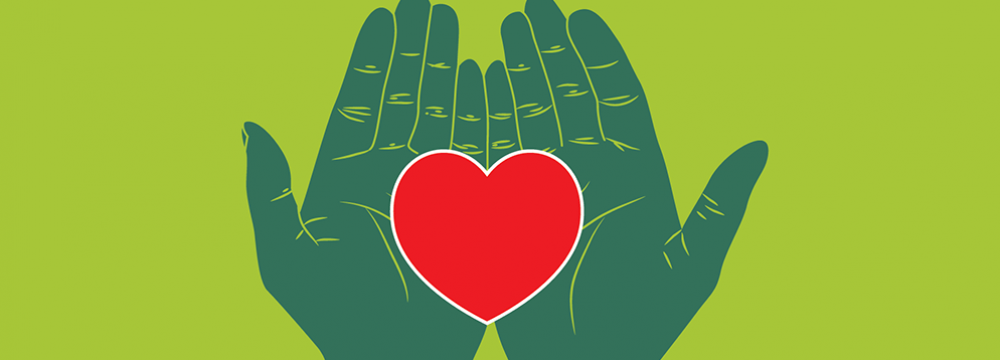While walking into a public hospital in Pakistan, one should be prepared for the depressing sights. From beds overflowing with patients to long lines of poor people seeking help for calamities that they can barely afford to fight, it seems that there is not much hope. In villages, the health facilities are scarcer and insufficient for the needs of communities. In a country where more than 70 million people live below the poverty line, health policies and the system are not coping up. No health insurance plans and rising costs of surgical procedures force many to give up and rely on divine help.
But there are many souls who think beyond themselves. They notably come forward and play their part in helping such groups and caring for their needs. Lack of healthcare is an opportunity for many welfare groups and charitable organizations to work for the vulnerable and the poor. And these support systems are heavily dependent on philanthropic contributions and make a large part of the country’s healthcare system.
The people of Pakistan are generally motivated to contribute towards philanthropic causes. In comparison to other places, there are several reasons why people are more giving. One of the most important ones includes the obligatory provision of Zakat to the deserving, a gesture much promoted and encouraged in the Muslim majority country. According to an economic survey, around 240 billion rupees were given for philanthropic efforts in 2013-14. The motivations may vary along with the accessibility and reach. Still, it is striking and incredible how much people like to give in this developing nation, which itself is marred by trials and tribulations. It is also to be noted that it is not just individuals but also other institutions from the private and corporate sectors that support the communities and non-profits with varying motives.
Health is one of the sectors where a large chunk of such contributions goes. Over the years, many new organizations have popped up that, along with the existing ones, employ an expert workforce and efficient management systems to look after the lives of those unable to afford the health facilities and treatments. They cover a variety of treatments for patients of all ages. For children, there are several renowned charitable organizations that treat malaria, birth disorders, congenital diseases, etc.

They also cover the diagnosis and surgeries of diseases in adults like tuberculosis, diabetes, disorders of the gastrointestinal tract, heart, lungs, and kidneys. It is necessary that such services are continuously provided because the other traditional, outdated, and overburdened healthcare system cannot handle it. The quality of life in the country is very low for the vast majority of the population, and lack of healthcare services deteriorates it even more. This tends to extend and ultimately affect the workforce and the overall economy.
One of the best and perhaps the most prominent non-profit welfare organizations that contribute majorly towards the provision of health services is the Edhi Foundation. Founded by the great Pakistani philanthropist Abdul Sattar Edhi in 1951, it has become a leading provider of various facilities and is one of the largest ambulance services in the world, with more than 1800 vehicles stationed across the country. Their exemplary services are extended to providing foster homes for the abandoned and orphans and caring for those rejected by society, including those suffering from mental disorders. The mobile dispensaries of the Edhi Foundation also provide free medicines and supplies to those in need.
Talking about organizations that cater to specific individual needs, Shaukat Khanum Cancer Hospital, SIUT, and The Indus Hospital, are few of the leading providers of services that target deserving individuals with particular disorders. Cancer is one of the most widespread diseases in the country, and SKMCH is an institution that looks after the patients and provides modern therapies and consultation of experienced healthcare professionals. It runs through donations and funds generated through campaigns and with the help of committed donors. The Trust has established several centers around the country that work to diagnose and treat patients and also raise awareness through special programs. The Indus Hospital initially set up as a provider of tertiary care with 150 beds, has now grown into an extensive network. The not-for-profit entity is managed through donations and Zakat and seeks to serve the underprivileged members of the community without any discrimination. There are also centers for blood transfusion for patients with life threatening diseases like Thalassemia around the country that provide services in affordable amounts.

As mentioned before, these efforts are not just based on or work through secondary institutions. With fast online applications, many people are quick to post and call for help on social media platforms. From groups of transplant services updates to pages that feature lists and needs of those seeking help, these platforms play a significant role in propelling the movement and getting the word out. Now, with a WhatsApp status, it can take less than a minute to get collections for a deserving person, and those having influence are able to generate an even bigger impact.
There are still many people who are skeptical of the role philanthropy plays in the healthcare system. Transparency is an essential element that needs to be strengthened, and lack of it is the reason for casting clouds of doubts. Still, the confidence is somewhat there as the groups continue to use any help and assistance provided, and organizations are running well using charitable investments. The impact they generate helps in increasing visibility and encouraging others to do the same.
The allocation of GDP to the health sector is less than 1 percent. It shows that when the incentives by the government are so scant and almost non-existent, it is up to philanthropic efforts to help stabilize the troubled system and provide accessible services in rural and urban areas. The role they play is enormous and must be appreciated, but there is a long way to go. It also does not mean that the local systems should be ignored. Standards of health need to be raised sufficiently in order to compensate portions of these diverse groups and communities.
The fundamental human right to healthcare is meant for every individual regardless of their backgrounds and income group. We have seen committed groups springing up over the years to support at-risk groups who are left on their own. Life-saving surgeries and alleviation of miseries are just some of the contributions they made and are making. Disparities in the healthcare system of Pakistan need to be addressed urgently. Until then, we should continue to support as much as we can and keep encouraging the positive attitudes that can, among other things, give someone a second chance to live.
Also read: Low Health budget amid the pandemic: a disaster in the breeding?

Maham Maqsood is a science communicator and co-founder at Scientia Pakistan. She is currently doing Masters in Biochemistry at the Middle East Technical University, Turkey. She has over five years of experience in science communication and outreach, collaborating with researchers, educators, and communicators to develop effective strategies and content for various platforms and events.

